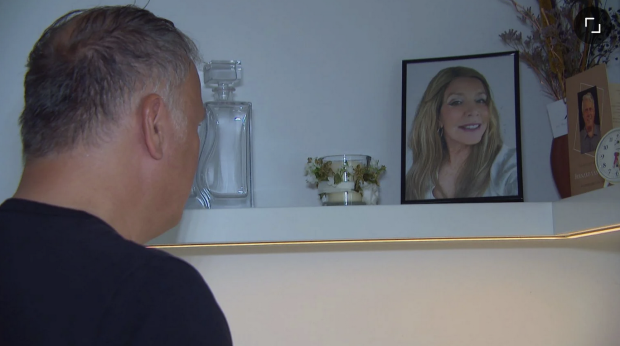September 1, 2024
Tinnitus & Euthanasia – even in the NL this is difficult
‘Corné’s wife chose suicide because euthanasia was not allowed’ by Jan Waalen & Suzan van Loenen
Mariska from Veghel was not eligible for euthanasia.
Her severe tinnitus was not hopeless enough, according to her GP. She decided she had to do it herself then.
On 29 April this year, she died at the age of 61. Her husband and she wish things had turned out differently.
‘I think it was an incredibly brave act by her, but it didn’t have to be that way,’ Corné van Bakel tearfully told his wife.
For over two years, Mariska suffered from tinnitus: severe tinnitus.

It started two and a half years ago as a whistling sound in her ear after a car accident. Another car collided with the back of her car. Both cars were totaled and miraculously Mariska got out alive.
At first glance, she seemed to have had an angel on her shoulder. But shortly afterwards, the damage turned out to be much worse.
The impact had damaged Mariska’s hearing and caused tinnitus, an unbearable beeping sound.
‘The last period before her death, it sounded to her as if there was a fighter jet in her head,’ Corné says.
Every day Mariska would crawl against him crying.
‘Desperately, like a little girl.’ She tried all kinds of treatments, even abroad, but nothing helped. Still, according to the GP, she was not yet out of treatment.
She was therefore not yet given permission for euthanasia.
‘She didn’t want to die, but she couldn’t live like this anymore either,’ she says.
‘If I had been there, I risked a prison sentence.’
On 29 April, Mariska took her own life, without her beloved Corné.
‘There was no other way,’ he sighs. ‘If I had been there, I risked a prison sentence.’ So the two said what they wanted to say to each other one last time. Then Corné left the house.
When he returned an hour later, Mariska was lying in a chair.
He called the GP to report the death.
Then something happened that he did not expect at all: the police came to resuscitate Mariska. ‘I said stop, she doesn’t want this,’
Corné sobs.
A video in which Mariska told them she did not want to be resuscitated made no difference.
‘It was protocol. If they didn’t do it they were prosecuted.’
‘It could have been so much more dignified.’
It was eventually established that Mariska had actually died. ‘But it could have been so much more dignified,’ says Corné.
Now she was scared and lonely before her death.
I am incredibly proud that she dared to do that.’
According to Corné, Mariska is one of many examples of how badly things are arranged in the Netherlands.
‘So eagerly she would have had a dignified end. Together with me as a loved one, together with a doctor who made sure nothing could go wrong.’
By telling his story, Corné hopes that it will be made easier to perform euthanasia under supervision. So that others don’t have to go through this too.
The GP cannot and should not give a substantive response due to professional secrecy. This also applies when someone dies.
Dutch Euthanasia Law
Euthanasia is regulated by law in the Netherlands. A number of care requirements must be met.
For example, a person must ask for it voluntarily and have given it careful thought.
An independent doctor must observe and it must be established that there are no reasonable other solutions.
In addition, the doctor must be convinced that the patient is suffering unbearably and hopelessly.
According to experts, euthanasia in cases of tinnitus is not impossible, but it is complex.
The underlying cause of tinnitus is difficult to determine.
This is necessary to establish the medical basis for euthanasia, and to draw up a treatment plan.
Such a plan must be in place to determine whether all that is reasonable has been done and whether the suffering is hopeless.
Views on broadening the legislation around voluntary end-of-life are very different. Some experts attach great importance to the role and judgement of a doctor.
Others, such as NVVE, actually advocate widening.
Besides the euthanasia law, they want a law that allows people to direct their own death, even if they are not demonstrably ill.
Editor’s Note – even in the Netherlands, the right to a peaceful death is often withheld from people who seek this path.
This is the consequence of a medical model of end of life legislation.
Any law that is dependent upon medical definitions of illness and suffering, and which ignores the idea that ending one’s life in a rational way should be a fundamental human right, will have its victims.
One of these victims is Mariska.
If Mariska had travelled to Switzerland and used the Sarco, she would not have had to die alone.
Only in Switzerland can a person who is not ill, be lawfully helped to die.
See www.TheLastResort.ch for more information and options.